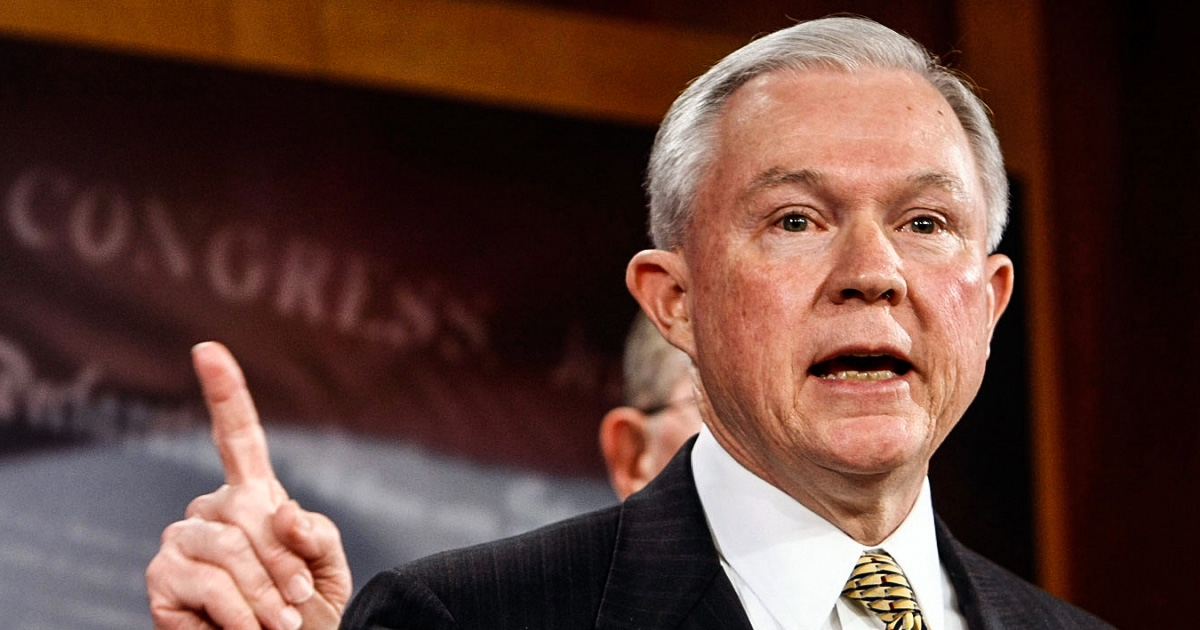On Tuesday, Attorney General Jeff Sessions got to sit in the hot seat and face a bit of what those dragged into the criminal justice system face on a frequent basis.
It was a valuable lesson for the Attorney General who is even now seeking special Congressional permission to pursue criminal charges against medical marijuana dispensaries located in legalized states.
According to a letter composed in May and made public on Monday, Sessions has implored Congress to allow him special permission in order to undo protections that currently exist for states that have legalized medical marijuana.
Sessions is requesting that Congress undo the Rohrabacher-Farr Amendment, which prohibits the Justice Department from devoting federal funding in order to prohibit the implementation of State laws which authorize the “use, distribution, possession, or cultivation of medical marijuana.”
Sessions’ letter cited “an historic drug epidemic” and “potentially long-term uptick in violent crime,” as two reasons for why the Amendment should be rolled back. Of course, there have been no scientific links between medical marijuana, addiction, or violent crime.
While Sessions’ notation that we are in the midst of a drug epidemic, the drug of concern is legal, pharmaceutical opioids, of which Sessions has shown no indication of pursuing.
Instead, Sessions, like so many regressive members of the GOP, have a laser-focus on the legalization of marijuana, either for recreational or medical purposes. Though the letter is surprising, it is not out of the ordinary for Sessions who has shown he is fully committed to wiping the streets clean of marijuana.
Sessions, who once said that marijuana was just “slightly less awful” than heroin, previously indicated that he would not respect states rights in regards to the legalization of medical or recreational marijuana. This letter appears to be the first step in that direction.
Though Sessions has made his plea, it is unlikely that Congress will agree to roll it back. The Rohrabacher-Farr Amendment was passed with strong bipartisan support. Today, 94% of the public supports the policy.
Sessions may want to go after state’s rights, but it appears he will not do so with Congress’s permission.

